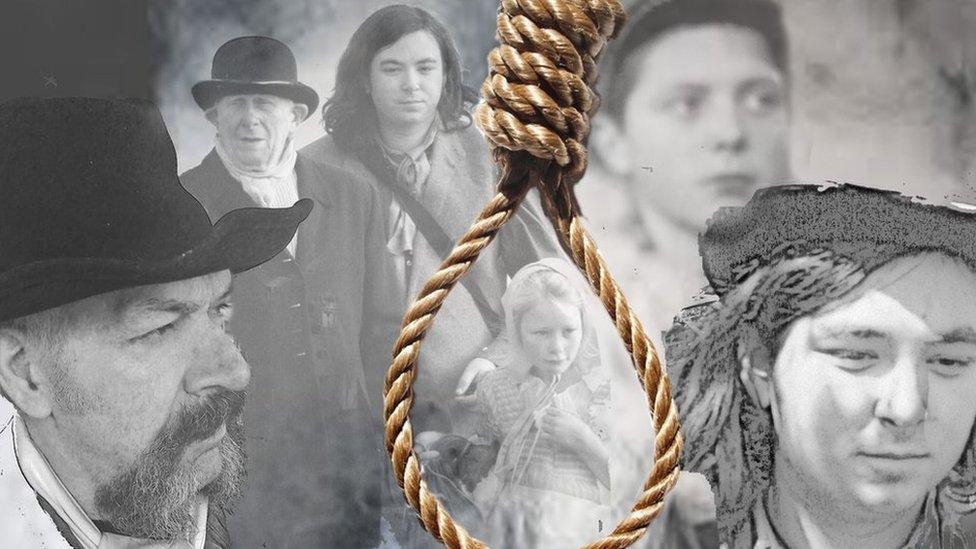New study overturns story of brass bands' origins
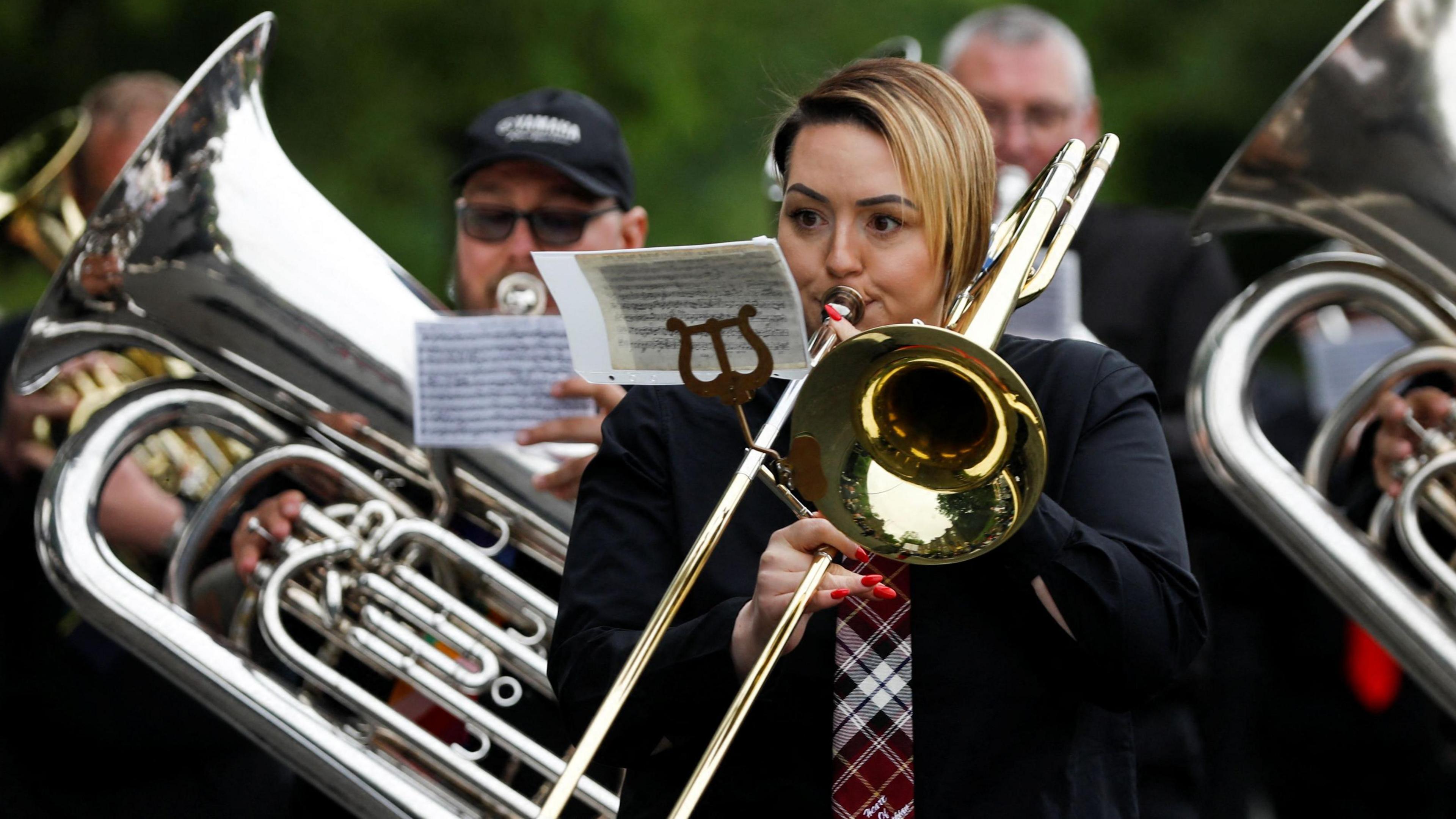
The military began to experiment with all-brass bands from the 1810s, and by the 1820s civilian brass bands were being created, many mentored by military veterans
- Published
The story of the origins of Britain's brass bands needs to be rewritten in the light of new evidence linking it to the Napoleonic Wars, according to a researcher.
It was previously believed the brass instrument groups began as a civilian and exclusively northern creation, with roots in industrial communities.
Now the role of military veterans in popularising brass bands in the early 19th Century has been unearthed by University of Cambridge historian Dr Eamonn O'Keeffe.
"We already knew about their relationship with industrialisation, now we know that brass bands emerged from Britain's wars against Napoleon," he said.

Dr Eamonn O'Keeffe said his research overthrows the assumption brass bands were primarily a product of industrialisation
Dr O'Keeffe was a teenager in Toronto, Canada, when he first became interested in the significance of military music during the Napoleonic Wars.
"I worked at a British fort from the war of 1812, external and played the drum and fife in the summer to bring the site to life for visitors," he said.
"I then wanted to dig deeper - what was it for, who are the men and boys playing it and what did they do after they left the Army?"
Hundreds of military bands were set up in the Napoleonic Wars, which lasted almost continuously from 1793 to 1815, many in the Army and others in the home defence-based militia or volunteer units.
Dr O'Keeffe, who is National Army Museum Junior Research Fellow at Queens' College, Cambridge, said: "All of these units have buglers and trumpeters and full bands of music, they also play at concerts and in the streets and village squares.
"They are very much part of the auditory landscape of the time for people living in Britain, and this familiarity with military bands helps fuel the interest in amateur brass bands that we see developing in the decades after the Battle of Waterloo, external."
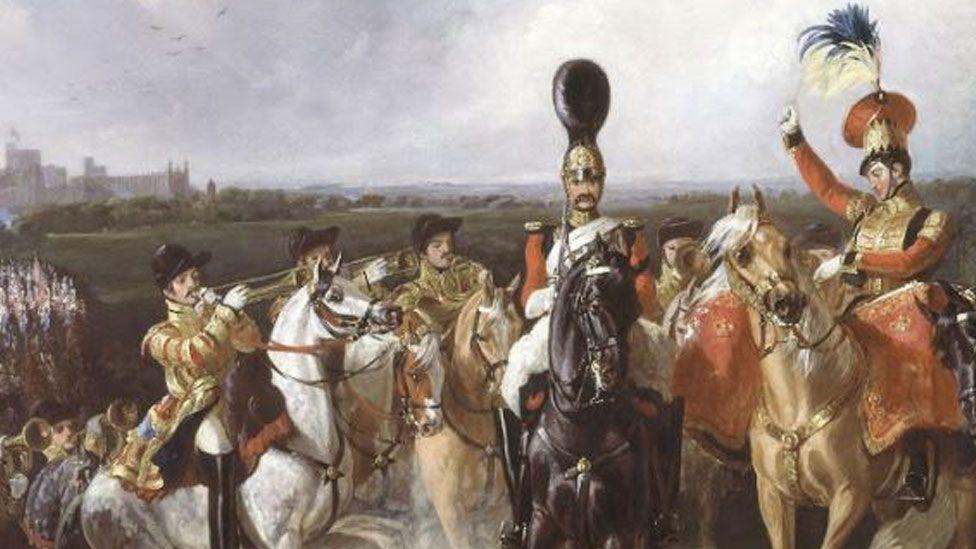
Military bands were used to give "pomp and pageantry" to parades, by officers at their dinner parties and balls and were also enjoyed by the soldiers, said Dr O'Keeffe
Dr O'Keeffe's research, published in the Historical Journal, external, revealed military regiments began to experiment with all-brass bands from the 1810s onwards, instead of a mix of woodwind and brass.
By the late 1820s, brass bands started forming outside the military, but often mentored by veterans.
One of the ex-military band leaders about whom he has discovered the most was James Sanderson, a Waterloo veteran, from Thrapston, Northamptonshire.
"He served in the British army in a cavalry regiment, so mounted on horseback, went on to become the trumpet-major of the 13th Light Dragoons and leaves the Army in the 1820s," said Dr O'Keeffe.
In 1829, the Leamington Spa Courier reported that Sanderson's Warwick and Leamington Military Brass Band performed at a Waterloo anniversary parade in Warwick, while in July that year the Leicester Herald said his band played for up to 300 people at a village feast in Stoneleigh, Warwickshire, inspiring a "merry dance".
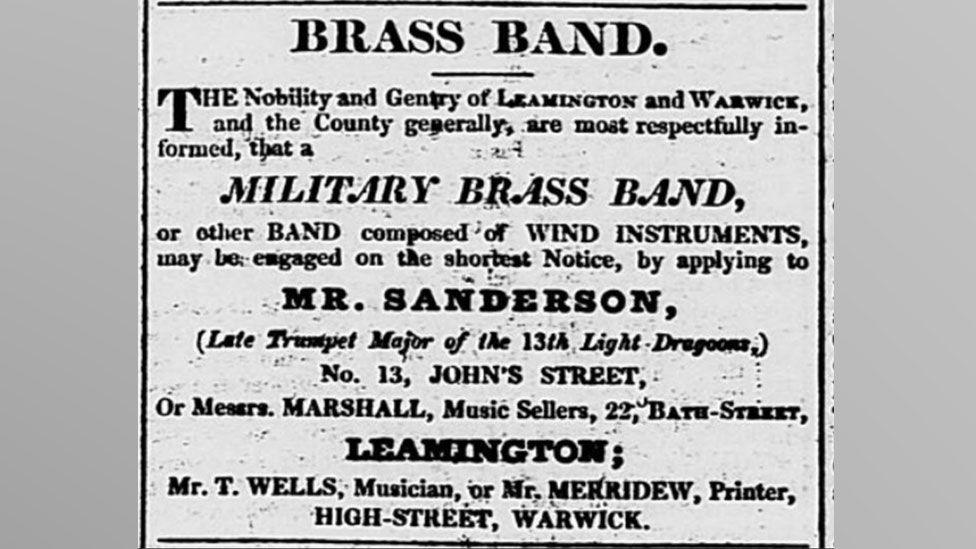
James Sanderson, from Thrapston, was one of many veterans who used the musical skills acquired in military bands to help him "survive and thrive" after he left
"William Self is another great example: a veteran himself, he served in the West Norfolk Militia and then sets up the Norwich Brass Band in the early 1830s and leads other all-brass bands that are playing at elections," said Dr O'Keeffe.
"Every area likes to claim they're the best, but [the local newspapers] say this is one of the best bands."
By the early 1830s, a brass band was also regularly playing in Abbey Gardens, Bury St Edmunds, Suffolk, alternating with the local militia band.
The first named civilian band which he has identified was Colyton Brass Band, playing in Devon in 1828. Chester and Sunderland had civilian brass bands by 1829. Derby and Sidmouth, in Devon, had theirs by 1834.
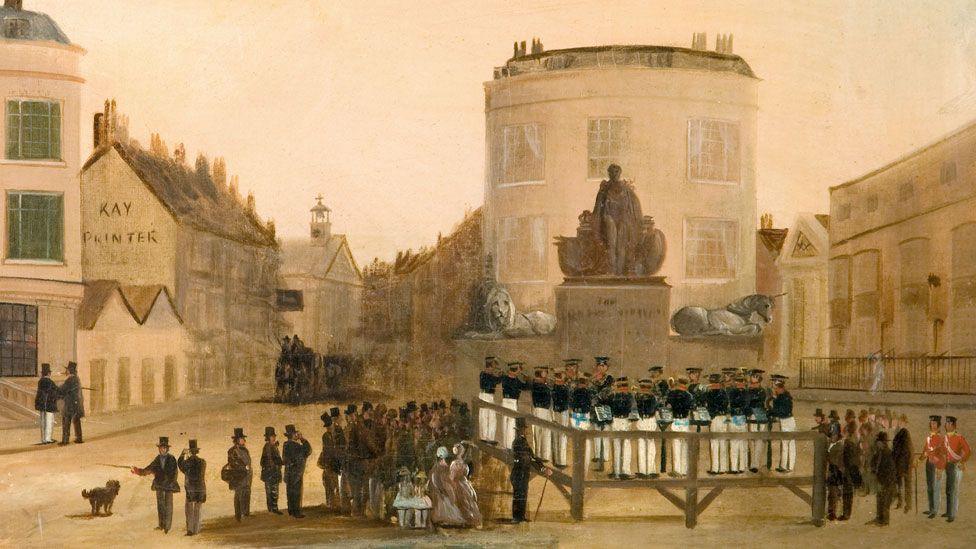
Many of the veterans performed in militia and civilian bands long after demobilisation, while others instructed and advised musicians
By 1814, more than 20,000 instrumentalists were serving in uniform and, come demobilisation, the men and boys used their instrumental skills in a variety of civilian musical careers, as instructors, performers, composers and opera singers.
During the nearly 20 years of the Napoleonic Wars there was "a sense that no public occasion is complete without a band of music", according to Dr O'Keeffe.
"In wartime, that's a military band and afterwards the demand continues and somebody needs to fill that gap - and very often, these military veterans are the ones who are entrepreneurial enough to see that," he said.
The historian unearthed their stories in overlooked press reports, memoirs and regimental records.
He argues his research overturns the assumption brass bands were primarily a product of industrialisation pioneered by working class performers and middle-class sponsors.
“Soldiers returned from the Napoleonic wars amidst a severe economic recession and many suffered a great deal,” said Dr O'Keeffe.
"Here we see musicians using the skills they developed in the military to survive and often thrive.”
Get in touch
Do you have a story suggestion for Cambridgeshire?
Follow Cambridgeshire news on BBC Sounds, Facebook, external, Instagram, external and X, external.
- Published25 April 2024
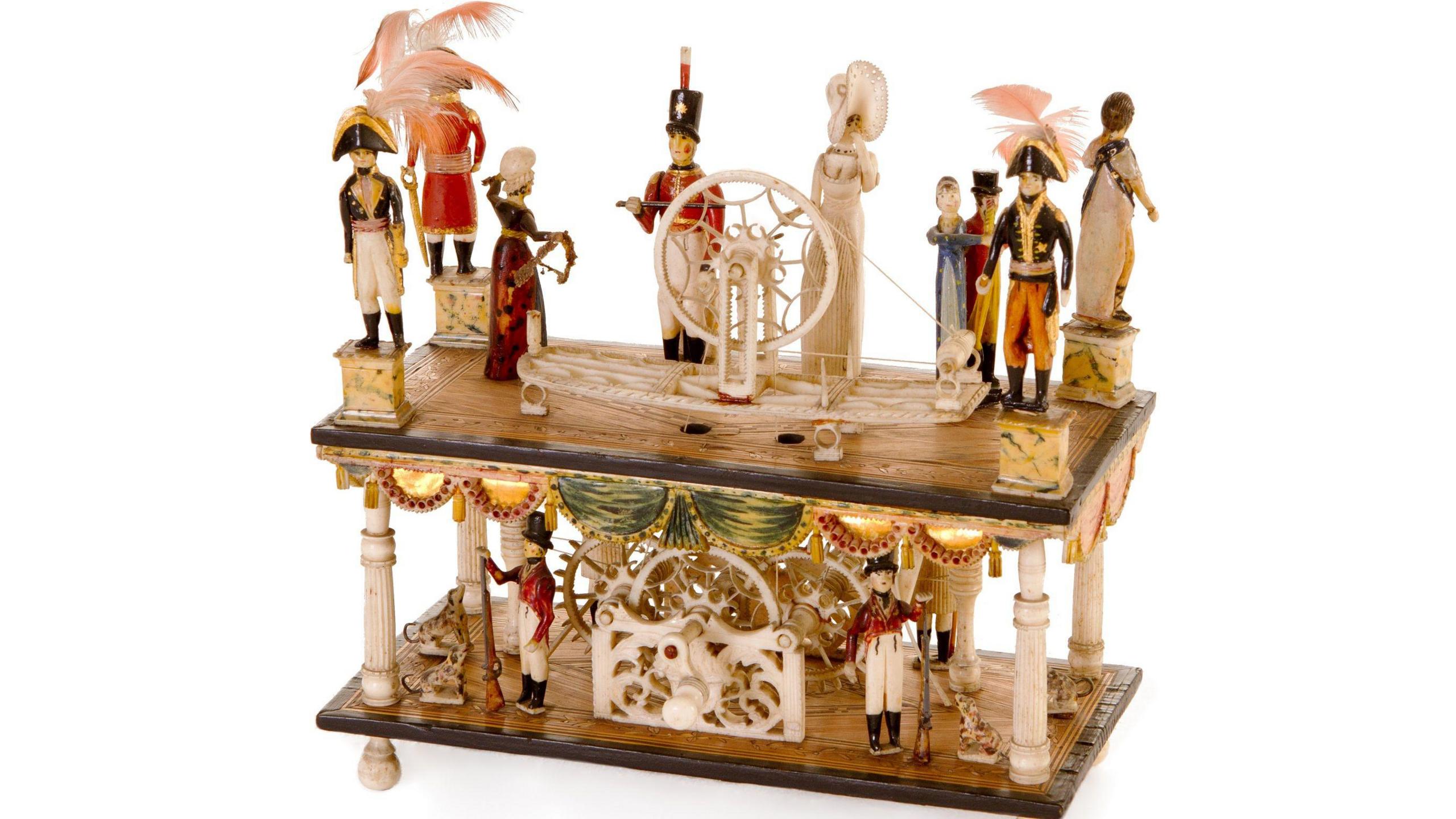
- Published5 May 2021
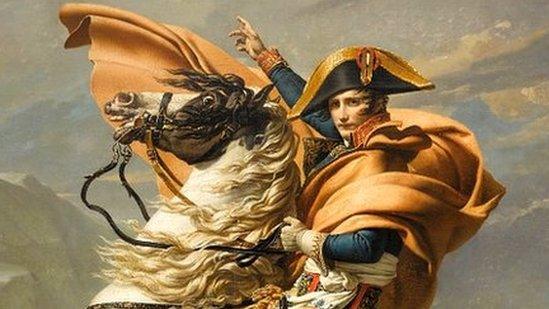
- Published28 May 2016
